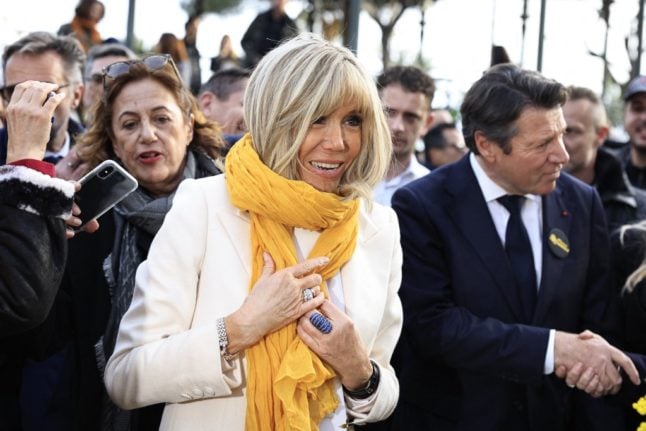Uniforms have never been compulsory in all state schools in mainland France, and the education minister is against any such law.
The president’s wife, a 69-year-old former high school drama teacher, said she had worn a uniform at school in an interview with Le Parisien Daily published Wednesday.
“I wore a uniform as a pupil: 15 years of dark blue short skirt, dark blue jumper. And I thought it was fine,” she said, responding to a question from a 14-year-old schoolgirl.
“It erases differences, it saves time. It’s time-consuming to choose what to wear in the morning, and costs money” to buy brands, she added.
“So I’m in favour of school uniforms, but if it’s a simple outfit — and not too drab.”
The topic was one of many covered in the interview conducted by seven members of the public, from sexual harassment and mobile phones in school to spelling and the juice she makes President Emmanuel Macron for breakfast.
Mandatory outfits were first introduced in France for secondary school students under Napoleon, according to historian Claude Lelievre.
Some state schools kept them on until as late as the 1960s, but the practice largely disappeared after the student-led protests of May 1968.
Today, uniforms are only worn in rare cases such as military academies or some private schools.
They are however more common in France’s overseas territories: a third of all state schools in Martinique, for example, require them.
The far-right Rassemblement National, led by Marine Le Pen, included a school uniform bill among seven laws it proposed on Thursday in the National Assembly.
Le Pen has defended a compulsory dress code as a way to “avoid the pressure” of “Islamists”. She also argues it would end “the contest to wear the most expensive, most luxurious, most fashionable clothes”.
Although the bill is expected to receive support from the right-wing Les Républicains, it is thought likely the Assembly will reject it.
The president’s centre-right block Renaissance is divided over the issue, and Education Minister Pap Ndiaye has repeatedly said he is against.
“I don’t want a law on the issue,” he said last week, adding that schools were already free to impose uniforms if they wanted.
The left is also staunchly opposed.
Hard-left La France Insoumise lawmaker Alexis Corbière said on Thursday the real problem was access to a good education, noting that many privileged families sent their children to private schools
“Wearing the same T-shirt and the same short skirt won’t solve the problem,” he said.
Green MP Sandrine Rousseau also argued that uniforms would not reduce inequality in education.
“You just need to massively invest in state schools, correctly pay the teachers,” she wrote on Twitter.



 Please whitelist us to continue reading.
Please whitelist us to continue reading.
Member comments